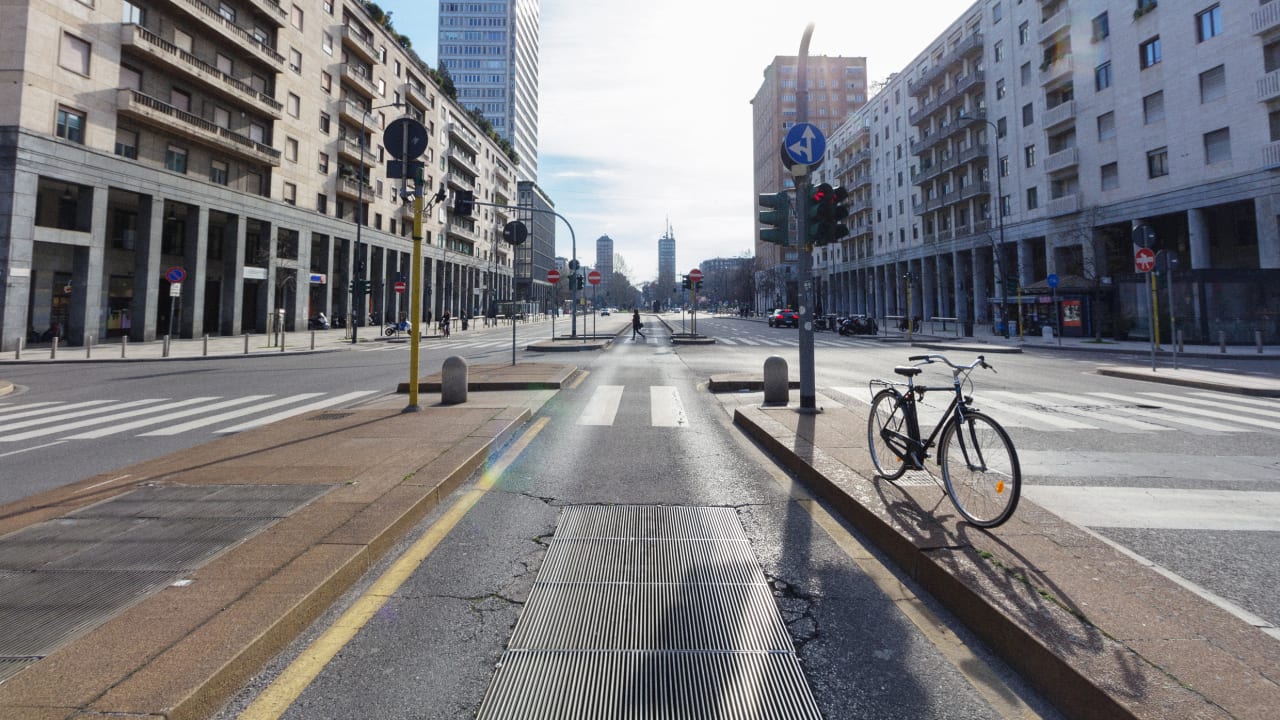Covid-19 and the Cities
Perhaps the most significant long-term effect of the pandemic will be on the very nature of the cities we live in. During lockdown, deserted city centres temporarily became eerie post-apocalyptic stage sets, but the more lasting consequences are likely to be due to the shift to remote working made possible by the internet and the rapid uptake of video conferencing tools such as zoom. Covid made it clear that a wide range of occupations could be performed just as well from home as in the office. Businesses discovered that productivity often increased, and many commuters discovered the benefits of abandoning the daily commute and having the opportunity to spend more time with their families. This was, of course, not always the case. For those living alone loneliness and isolation became an issue, many lacked suitable domestic workspaces, and for families with young children home-working often became an impossible juggling act. However, the evidence suggests that remote working is here to stay, with the UK having the slowest rate of return to the office of any European state. The consequences may be dramatic. Without daily commuters, the railways had to be effectively nationalised to survive, and the ancillary businesses dependent on lunchtime and after-work trade; coffee shops, restaurants, pubs and city centre retail outlets and so forth have been, possibly fatally, undermined. The shining towers of office blocks that had fuelled a speculative building boom and realised a highly profitable rate of return suddenly look like dinosaurs. However, while the mega-cities might start to hollow out, it is possible that smaller cities, dormitory towns and the suburbs may undergo a renaissance. If the office is to survive, its function and physical architecture may have to undergo significant change. Will cities become greener, as space is opened up and bicycle lanes are laid down, or more polluting, as people switch to individualised transport and cars fill the streets with petrochemical haze? Will the differential impact of the pandemic on different socio-economic groups create ghettos of entrenched poverty and bubbles of affluence in the post-covid city?
In early August the pandemic perspectives group debated the issue of covid and the city, guided by two Financial Times articles, Natalie Whittle’s, 18 July piece, ‘Welcome to the 15 minute city’, and Camilla Cavendish’s of 15 May , ‘The Crisis is killing the Attraction of Megacities’; two articles from The Economist, ‘Bartleby’, ‘Back on the Chain Gang’ of 1 August, and ‘Lexington’ ‘Ode to the Shopping Mall‘ of 9 May, and Sophie Charara’s piece in Wired magazine, ‘The Pandemic will change the way our homes and offices are built‘.
David Christie, as the group’s optimist, put forward a vision of re-vitalised local communities, with dormitory towns building their own local identities and he envisaged a necessary shift away from the predominance of London over the rest of the United kingdom. He expressed hope that office building would be repurposed as residential accommodation, and spoke up for the conception of the fifteen minute city, with open plazas, new green spaces and roadways adapted for walkers and cyclists. He cited the evidence of new cycle lanes and pedestrian zones in London and Manchester and the increase in searches for rural and suburban property recorded by estate agents.
Others were more sceptical. They noted that home-working itself was not an unalloyed joy, with Hanan Fara arguing that nobody was ‘working from home’, but that we were all ‘living at work’, a very different conceptualisation. This view had strong resonance amongst the group. Many thought that the experience of home working was very much less than benign, citing evidence of the huge increase in mental distress of isolated individuals and the rising levels of domestic violence. The conviviality of working within a shared environment was commented upon, and the contrast between those of long tenure, with already established relationships that could be sustained online, and new or junior employees with no established networks was noted.
Others pointed out that remote working was largely possible only for white-collar jobs and of most benefit to professionals. As a consequence, while St Albans and Surrey commuter-belt towns around London, and places like Digbeth and Bourneville near Birmingham might well see civic improvements, huge swathes of the population would be left behind, creating zones of entrenched poverty. Liam Knight, currently domiciled in Devon, argued that David’s vision was an inherently middle-class fantasy, and that for rural communities it would mean a further escalation in house prices as the wealthy fled the cities, creating even more severe housing shortages for local residents. He described a picture of a ‘new feudalism’, with local residents performing the roles of domestic service for the wealthy incomers. While historians baulked at the interpretation as feudal, the point was felt well-made.
Richard Kendall argued that, given that larger corporations, with greater reserves of capital and better access to government support systems, were more likely to survive the economic downturn, rather than charming, individualised small towns developing, the more likely outcome was identikit high streets dominated by national chains, turning the whole country into a giant airport lounge.
There was considerable scepticism that the ‘greening of the city’ would be any more than ‘window-dressing’, and that with the increased fears of contagion on public transport, British cities were more likely to end up resembling the car-dominated Los Angeles than bicycle-friendly Copenhagen. It was also noted, that as the oncoming deep recession would fall heaviest on the urban poor, greening the city would require the deepest investment in those areas most blighted by the brutalist architectural experiments of the 1960s and 1970s, which would seem unlikely given the political stripe of the incumbent government.
There was much more – join the conversation by posting a comment or setting up your own group.

